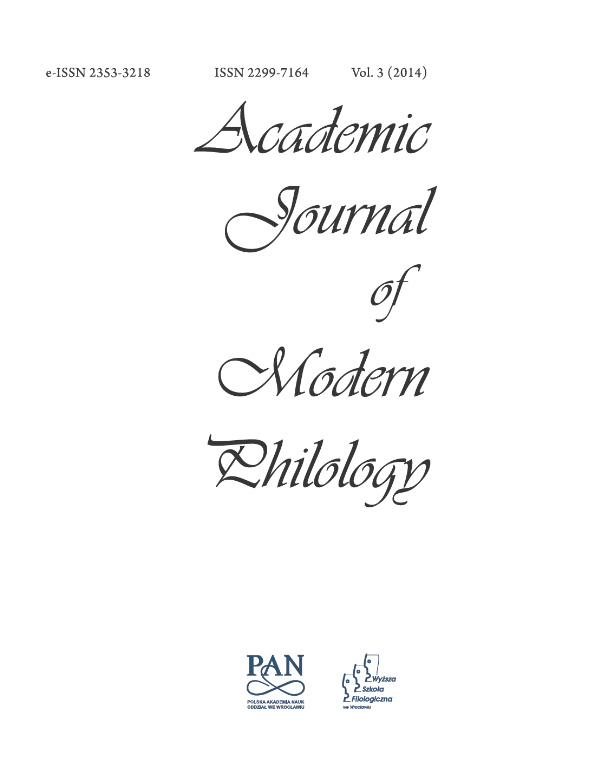Metaphorical Underpinnings of Panels in Comics
Metaphorical Underpinnings of Panels in Comics
Author(s): Michał SzawernaSubject(s): Language studies, Language and Literature Studies, Studies of Literature
Published by: Komisja Nauk Filologicznych Oddziału Polskiej Akademii Nauk we Wrocławiu
Keywords: metaphor; comics; events; summary scanning; nominalization; image schemas
Summary/Abstract: In the field of comics studies, which evolved from a mere topic area into a burgeoning field of inquiry at the turn of 1980s and 1990s, the dialogue about meaning in comics was initiated by practicing cartoonists, who proposed new lines of research and introduced serviceable terminology which remains in use even today. These early contributions may have provided a solid basis for the investigation of meaning in comics, but they were repeatedly criticized for their lack of an academic orientation prerequisite for serious-minded comics scholarship. With the onset of the new millennium, it was linguistic theory that came to be called upon with increasing frequency to provide the missing orientation. Recent observers point out that for over a decade linguistics in general, and cognitive linguistics in particular, has informed much of the most insightful comics research. This paper is an attempt to contribute to the intersection of cognitive linguistics and comics scholarship by demonstrating that a number of conceptual metaphors whose linguistic manifestations have been studied in considerable detail facilitate, either separately or jointly, the conceptualization of the main formal unit of comics: the so-called panel. It appears that depending on what individual panels are taken to refer to (events, states, periods of time, visual fields, portions of the world of the story), they are metaphorized in different ways (as objects, containers, windows onto the world of the story), in accordance with a central tenet of conceptual metaphor theory whereby metaphors highlight some aspects of the metaphorized concept and simultaneously hide others. On the one hand, this paper adds to the growing body of research demonstrating that metaphor is a conceptual mechanism which transcends language; on the other, it adds to the dialogue about how comics achieve meaning by discussing the metaphorical underpinnings of the panel, and by framing this discussion in terms of cognitive linguistics, a scholarly tradition with which comics studies have successfully intersected.
Journal: Academic Journal of Modern Philology
- Issue Year: 2014
- Issue No: 3
- Page Range: 89-107
- Page Count: 19
- Language: English

